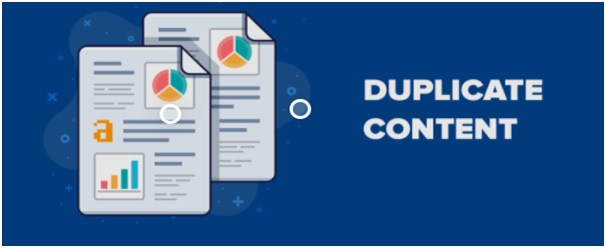The data that appears in several places on the internet is called duplicate content. It occurs when the same content appears at many website addresses.
Most importantly, duplicate content impacts search engine rankings. Sometimes, search engines cannot determine which content is more relevant to a particular search query when there are many pieces of similar content in multiple locations on the internet.
Matt Cutts, an ex-Google engineer, says that almost 30% of the website’s information is copied. You can see it easily without malicious purpose; generic product descriptions, boilerplate content, or marketing slogans are frequently replicated across domains and pages.
Search engines recognize duplicate material; accordingly, despite assertions to the contrary, duplicate content does not result in a Google penalty.
Copied content is one thing that will get you a Google penalty. When scammers copy content from a source and paste it on their websites, this is known as duplicated content.
Does pasting duplicate content matter for SEO?
What is duplicate content in SEO?
Will you gladly let duplicate content run wild on your website if it results in Google penalties?
Absolutely not!
Duplicate content negatively impacts your page rankings and organic traffic even if your site is not penalized.
At first, search engines do not show duplicate results on their pages. This makes sense for users; after all, a results page with 12 similar results spread across multiple pages is less valuable than a page with 12 unique results.
Search engines must determine the most relevant version of duplicate information. They accomplish this by looking at domain authority and determining which website’s content looks original and authoritative.
Search engines determine the most relevant version of duplicate data. They accomplish this by looking at domain authority and determining which website’s content looks unique. Then, crawlers skip the duplicate content from the searches.
Remember, your URL will be filtered out from the results pages if your site’s content appears on an authoritative site.
Also, most of your website’s pages will be skipped from the search engine results if you have duplicate information on many pages. Plus, your site’s overall visibility will be lowered.
How much duplicate content is acceptable for your website?
Keep the examples of naturally occurring duplicate content in mind:
• Product descriptions and specifications of your business websites
• A product appearing in multiple categories on your site
• Duplicate content on the same page of your website
• Relying on another website’s data, i.e. press release
Disadvantages of duplicate content
• Duplicating content negatively affects your performance
How would you feel if you saw the same content multiple times in one day?
Indeed, you will associate the repetitive content with something undesirable. Even high-quality content lowers its potential if it is shared too frequently.
Thus, be proud of your best-written content.
• Duplicate content spoils your SEO ranking
While uploading a well-crafted article about your business multiple times will improve your SEO ranking. But repeating the same terms and phrases in web page copy will not.
Even though Google says there is no penalty for duplication, the content of those websites that are poorly written and unnecessarily repetitive will always perform poorly compared to sites with well-knit content.
A limited degree of repetition is required in some circumstances, such as product descriptions and service lists. However, copying and pasting significant chunks of content from page to page is never a good idea.
• Making a mistake in the balance
In the long run, if your company develops a reputation for repeatedly publishing the same item, the platforms will either impose restrictions, or potential consumers will block you.
How to avoid duplicate content effectively?
As mentioned earlier, duplicate content problems (onsite or offsite) harm your SEO efforts. So, let’s look at the issues with the same content and how to fix them.
Eliminating duplicate content is a challenging task in the SEO field but most of the people prefer taking writing help by a trusted and most recommended writing service agency.
They have professional writers having expertise in writing SEO optimized content which can help you rank faster and avoid duplicate content penalties.
One of the main reasons for duplicate content is that multiple content management systems and sloppy developers craft sites with eye-catchy designs, but they do not focus on how that content looks from a search engine optimization standpoint.
As a result, the SEO is frequently confronted with potentially harmful duplicate content issues.
Duplicate content can be of two types, and both are problematic:
• Onsite duplication
When the same material is replicated on two or more unique URLs on your site, this is known as onsite duplication. Again, this is usually something that the site administrator and web development team can manage.
• Offsite duplication
When two or more websites publish the same chunks of content, this is known as off site duplication. This is often impossible to control directly.
In this situation, you need to talk with the third parties and the owners of those websites.
Solutions such as not indexing particular sites, utilizing 301 redirects, and employing canonical URL tags can be used to address problems arising from internal content duplication.
However, eliminating duplicate material is a superior option in many circumstances. For example, when you employ a 301 redirect, the page becomes invisible to search engines; in this situation, you should consider if the page serves a meaningful purpose.
The canonical tag is a better method to keep duplicate content and prevent it from interfering with search results accuracy.
The most straightforward strategy to avoid search engines becoming confused by duplicated material is to prevent it entirely by writing unique texts for each web page. Of course, you could be tempted to make spinning versions of material with only minor changes, but that would not work.
Spun content will be considered duplicate content by Google.


